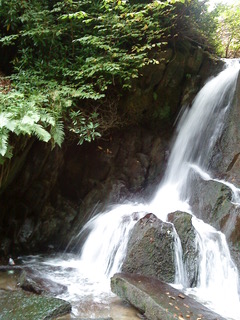The Mysticism and Spirituality of St. John of the Cross
2 online series of 3 Meditation Workshops
30th September, 28th October, 26th November
Saturdays, 10:00–12.30 BST/GMT
and
October 12th, November 9th, December 7th
Thursdays, 17:00–19.30 BST/GMT
Two poems by St. John of the Cross, The Dark Night and The Spiritual Canticle, will form the basis of our meditation.
How to Book
Cost Free
Contact Jim Griffin for more information – jimjgriffin@hotmail.com
Participants will be limited to 15 per workshop. Please sign up in the first instance for one or other sets of workshops, although it will be possible on occasion to move between them if work commitments dictate.
Workshop Details
As a basis for meditation we will use two poems by St. John of the Cross, The Dark Night and the Spiritual Canticle. The format will involve two half hour periods of meditation interspersed with readings and shared reflections. The poems are the fruits of St. John’s deep meditation, and our own meditation will allow for a deeper appreciation of St. John’s words.
St. John of the Cross was a sixteenth century Spanish Carmelite friar. He was a close associate of Theresa of Avila, and together they worked for the reform of the Carmelite order within the Catholic Church. He was drawn to a deeply contemplative life from an early age, and his profound experiences are recorded primarily in his poetry on which he also wrote extended prose commentaries. He is regarded as one of the finest Spanish poets. There are Jewish and Islamic influences in the background to his work and the love mysticism that he writes about bears close affinities with the work of Rumi and Hafiz.
If some participants are new to meditation we will have a brief introduction to a simple form of meditation.
All sessions will be on Zoom.
Finding happiness and purpose in today’s world
A Comprehensive Beshara Course for Young Adults
Introductory in-person meeting in London
27th September 2025
(Zoom attendance also possible)
10 x weekly online sessions via Zoom
6th October – 8th December 2025
Weekly on Mondays, 19:00-20:30pm BST/GMT
This is a course for young people who want make sense of the world and their place in it. It is designed as a voyage of discovery toward a more meaningful life. The course addresses the whole person – body, mind and spirit – by drawing on a rich range of wisdoms and techniques. Building on the successful pilot offered last year, the course invites anyone with curiosity and a desire to lead a more fulfilling life.
Contact: besharacourses4@beshara.org
Love and Knowledge in the Light of Unity | the Direct Path
Beshara Foundation Course
Introductory weekend at Sutton Courtenay Abbey, Oxfordshire
10th – 12th October 2025
(Zoom attendance also available)
10 x bi-weekly evening online sessions
23rd October 2025 – 26th March 2026
Thursday evenings, 19:00 – 20:30 GMT/BST
This course provides a full introduction to the principles of Beshara in terms of both knowledge and practice. Taking the metaphysics of Muhyiddin Ibn ‘Arabi as a starting point, the course explores what it means to understand oneself and the world in the light of the Unity of Existence.
Contact: besharacourses3@beshara.org
Mirrors of the Transcendent in the Cosmos of Ibn Arabi: The Body as Metaphor of Divine Self-Revelation
25th-26th July 2025
The Warburg Institute, University of London
A joint symposium held by the Muhyiddin Ibn ‘Arabi Society and The Warburg Institute.
More details: https://ibnarabisociety.org/events/
Booking: https://warburg.sas.ac.uk/events/cosmos-of-ibn-arabi-2025
Aspects of Science, Imagination and the Mystical
Saturday 14th June 2025
14:00–17:00 BST
The October Gallery, London
With Peter Coates
This talk will consider the vital role of the Creative Imagination in Natural Science and in the Mystical Philosophy of Muhyiddin Ibn ‘Arabi.
Contact: Michael Cohen london@beshara.org
Paradise E’Now or The Smile of the Spirit
Saturday 24th May 2025
14:00–17:00 BST
The October Gallery, London
With Charles Mugleston
A special Birthday Celebration with music, exploring, experiencing & soulfully enjoying the Ruba’iya’t of Hakim Omar Khayya’m translated & adapted by the Anglo-Irish genius Edward FitzGerald of Woodbridge, Suffolk into “English Music” in 1859.
Contact: Michael Cohen london@beshara.org
© The Beshara Trust (UK) 2022. All rights reserved
